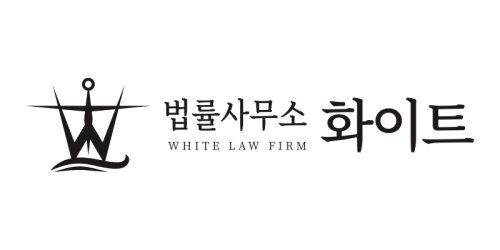Best Toxic Mold Lawyers in South Korea
Share your needs with us, get contacted by law firms.
Free. Takes 2 min.
Or refine your search by selecting a city:
List of the best lawyers in South Korea
About Toxic Mold Law in South Korea:
Toxic mold, also known as mold or fungus, can pose serious health risks when present in homes or buildings. In South Korea, there are laws and regulations in place to address issues related to toxic mold and protect individuals from its harmful effects. If you suspect that you have been exposed to toxic mold, it is important to seek legal advice to understand your rights and options.
Why You May Need a Lawyer:
You may need to consult with a lawyer regarding toxic mold in situations such as:
- When you suspect that toxic mold is present in your home or workplace
- If you have suffered health issues due to exposure to toxic mold
- If you are facing resistance from landlords or property owners in addressing mold issues
- When you need guidance on how to take legal action against parties responsible for toxic mold exposure
Local Laws Overview:
Some key aspects of local laws in South Korea related to toxic mold include:
- Landlord obligations to maintain a safe and healthy living environment for tenants
- Health regulations governing exposure to toxic substances, including molds
- Potential liabilities of property owners for damages caused by toxic mold exposure
- Procedures for reporting and addressing toxic mold issues in residential and commercial properties
Frequently Asked Questions:
Q: What are the health risks associated with toxic mold exposure?
A: Exposure to toxic mold can cause respiratory problems, allergies, skin irritation, and other health issues.
Q: How can I determine if there is toxic mold in my home?
A: You may notice musty odors, visible mold growth, or experience symptoms such as coughing or skin rashes.
Q: Can I sue my landlord for toxic mold exposure?
A: Depending on the circumstances, you may have legal grounds to take action against a landlord for failing to address toxic mold issues.
Q: What should I do if I suspect toxic mold in my workplace?
A: Report the issue to your employer and seek legal advice to determine the best course of action.
Q: How can I prevent toxic mold growth in my home?
A: Keep indoor spaces well-ventilated, address any water leaks promptly, and maintain proper humidity levels.
Q: Is testing for toxic mold necessary?
A: Testing for toxic mold may be recommended in certain situations to determine the extent of contamination.
Q: Can insurance cover damages related to toxic mold exposure?
A: Some insurance policies may provide coverage for damages caused by toxic mold, but it is important to review your policy terms.
Q: What are the time limits for taking legal action against toxic mold exposure?
A: The statute of limitations for filing a lawsuit related to toxic mold exposure may vary, so it is important to consult with a lawyer promptly.
Q: Are there government agencies that can help with toxic mold issues?
A: Local health departments and environmental agencies may offer guidance on addressing toxic mold problems.
Q: How can a lawyer help me with toxic mold legal issues?
A: A lawyer can assess your case, provide legal advice on your rights, and represent you in negotiations or court proceedings related to toxic mold exposure.
Additional Resources:
For more information on toxic mold in South Korea, you can contact the Ministry of Environment or local health departments for guidance and resources. Additionally, legal aid organizations may offer assistance to individuals in need of legal advice regarding toxic mold issues.
Next Steps:
If you believe you have been exposed to toxic mold or have concerns about mold issues in your property, it is advisable to consult with a qualified lawyer who specializes in toxic mold cases. They can help evaluate your situation, explain your legal options, and guide you through the process of seeking justice and compensation for any damages caused by toxic mold exposure.
Lawzana helps you find the best lawyers and law firms in South Korea through a curated and pre-screened list of qualified legal professionals. Our platform offers rankings and detailed profiles of attorneys and law firms, allowing you to compare based on practice areas, including Toxic Mold, experience, and client feedback.
Each profile includes a description of the firm's areas of practice, client reviews, team members and partners, year of establishment, spoken languages, office locations, contact information, social media presence, and any published articles or resources. Most firms on our platform speak English and are experienced in both local and international legal matters.
Get a quote from top-rated law firms in South Korea — quickly, securely, and without unnecessary hassle.
Disclaimer:
The information provided on this page is for general informational purposes only and does not constitute legal advice. While we strive to ensure the accuracy and relevance of the content, legal information may change over time, and interpretations of the law can vary. You should always consult with a qualified legal professional for advice specific to your situation.
We disclaim all liability for actions taken or not taken based on the content of this page. If you believe any information is incorrect or outdated, please contact us, and we will review and update it where appropriate.
Browse toxic mold law firms by city in South Korea
Refine your search by selecting a city.










